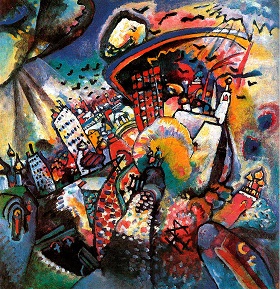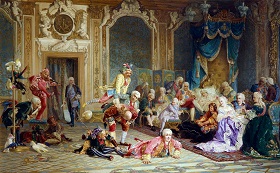In his article “Soft Power: Reality and Myth”, Alexei Fenenko offers a discussion on the effectiveness of, and therefore the prospect for, Russia’s use of “soft power”. The term has become extremely fashionable of late, which makes you wonder about what it can really accomplish.
“Soft power” is a process of a state achieving its strategic interests by creating a positive image of itself among the people of another country. Despite the fact that the term “soft power” as it is understood today is generally thought to have been coined by Joseph Nye, the technique has actually been used for centuries throughout human history. And if we look at this tool of international politics in terms of mathematics, then two types of condition are required in order for it to be implemented successfully: necessary conditions and sufficient conditions.
A necessary condition is formed by the existence of clear strategic objectives on the part of the subject of international politics. A sufficient condition – and I do not agree with the author here – is not a desire on the part of the object of international politics, but a means available to the subject for organizing this very same “soft power”. As such, we cannot rule entirely the possibility that one state could affect public consciousness in another. What is more, human development has shown us that this happens no matter what. At the current stage of civilization’s development, with its ever-increasing global interconnectedness and its informational and transport infrastructures, the mutual influence that states have on the social atmosphere in other countries is an inescapable element of international relations.
In this case, it is not entirely correct to talk about the reluctance of countries that are objects of international politics to perceive influence from the outside as the main limiter of “soft power”. The goal of any state is to minimize the influence of others on their internal situation and thus avoid threats to its existence. The manner in which this goal is achieved may differ among states:
- Absolute autonomy (isolationism, an “iron curtain”, etc.). Perhaps the most striking example of this on today’s political landscape is North Korea.
- Political symbiosis, which involves adjusting to surrounding players with the aim of maintaining certain attributes of statehood and sovereignty. This form of international cooperation is common among small states and countries that do not have sufficient power and resources to actively resist outside influence, as well as among relatively powerful states that are prepared to make compromises with other countries. The degree of internal reorganization that takes place in order to minimize pressure from the outside may differ: from formal loyalty in mutual relations and with third countries to radical reorganization of the internal political, economic and cultural space.
- Extensive pressure. A state sees the influence that it exerts on others as the main form of interaction in the global arena. Hegemony is the highest manifestation of this.
Therefore, proceeding from the thesis that external influence is constantly exerted on society, we should not be talking about the willingness or unwillingness of a state to surrender itself to this influence, but rather about how effectively the subject and object utilize the tools for exerting and, consequently, countering it. Given that in the real world external influence is, by virtue of the great number of players, multidimensional, the main conclusion that Russia (as well as any country that has foreign policy ambitions) should make is that you cannot avoid influencing others. The transition to the concept of segmenting the objects of influence according to the prospects of their forming “soft power” is a veiled admission of weakness and the first step towards isolationism, a losing form of politics in today’s world.
And what comes to the fore here is not abandoning the fight to influence what people think, but rather the adequacy and effectiveness of using the means and resources (rather limited in Russian’s current conditions) allocated for this purpose. The degree to which the target audience is influenced should be determined first of all by the strategic goals of the state.
To be sure, there are a number of states where the political elite and the overwhelming majority of society harbour negative, or less-than-positive, opinions about Russia. It would seem that it is not worth the effort to apply “soft pressure” on these countries, as, according to Alexei Fenenko’s theory of complementarity, it is impossible to overcome their innate apathy.
It all depends on the strategic objectives Russia sets itself. It would be absurd in today’s world set to the physical destruction of the opponent as a strategic task. However, creating a healthy scepticism within society towards the anti-Russian policy of the government is realistic. The role of “soft power” in this case is to deter anti-Russian sentiment and form a position among voters that would eventually force the political elite to limit the activity of their own hawks and search for compromises at the intergovernmental level.
The situation surrounding the RT television channel is direct confirmation of this. The growth in viewing figures in English-speaking countries shows that it has successfully found a point of influence on the target audience. Barack Obama’s pompous rhetoric extolling the “chosen nation” attracts a condescending smirk from the rest of the world. In the United States, however, it is seen as an indisputable fact. U.S. society is extremely sceptical of criticism from the outside. In this case, practically the only way to achieve success is to help the people form a critical view of the government’s policy.
This example shows that the policy of forming “soft power” in relation to different countries should be original above everything else, in the sense that the objectives pursued and the means used are clearly defined for each area. Of course, this approach is complicated significantly by the process of preparing and carrying out the relevant measures, but the effect they have carries more weight nevertheless.
When developing a long-term plan of measures to be carried out with regard to building “soft power”, it is without a shadow of a doubt necessary to take the historical, cultural and political (geopolitical) features of each state into account. History has shown us that almost any thorny issue in relations between countries can be overcome. For example, the historical and political reasons for disunity in Europe could not prevent the majority of countries on the continent from forming a union. On the whole, they did not have any reservations about giving up a part of their own sovereignty, overcoming their concerns about the third rise of Germany in the last hundred years.
However, in order to overcome the mass of problems in international relations and put “soft power” to good use, it is important to understand the most important thing – what Russia is prepared to offer in order to win over people from other countries. One of the determining factors is the subject’s ability to become a reference point for a certain sector of the object’s society, or even an ideal to strive towards. It is precisely this ability to become an indisputable authority for certain groups in society that paves the way for their opinions and political interests to be manipulated.
This can be achieved by exerting pressure in different areas: common history; cultural and national affinity; the convergence of real and imagined political interests; religious identity, etc. However, the modern pragmatic world, which is built first of all on capitalist ideals, determines the economic model through the primary feature of a potential leader and political point of reference. If the economic model of the state, even in its idealized form, is incapable of captivating the layman, then creating any kind of “soft power” is a big challenge, if it is even possible at all.
The Soviet Union became a perfect example of this. While the economy was developing and the country had enough money not only for domestic needs, but also for carrying out foreign policy projects, the impact of the first Socialist state’s “soft power” was enormous. In many ways, it was not only the Soviet Union’s military power and “repressive apparatus” (as some scholars and political circles try to see it) that defined the far-reaching support it received from the international community – it was also its “soft power”.
The economic crisis prevented the Soviet Union from helping its allies financially. Left to deal with their problems themselves, faced with Moscow’s growing isolationist policy and defeatism, and having lost faith in the ideals of socialism, most countries have turned to the West in search of a new point of reference. They were drawn in by idealized notions of Western-style democracy and a market economy, and were prepared to surrender a lot in order to achieve them, including part of their sovereignty and national identity.
Throughout its history, Russia has also gone through periods in which its people felt drawn towards foreign ideals. However, the obsession with all things French that dominated the later 18th and early 19th centuries should not be seen as a failure of “soft power” on the basis of the complementarity of a nation. Choosing France as a point of reference was based on the similarity of the political systems of the two countries (up to the French Revolution) and their economic power (even after the Revolution, France remained the most powerful state in terms of its economy in mainland Europe). The bourgeois Holland could not become an example for the Russian nobility – the main political and economic force in Russia up until the second half of the 20th century.
What is more, neither the anti-Napoleonic campaigns, nor the far more significant French Invasion of Russia in 1812 did anything that would suggest that “soft power” is ineffective. They do, however, give us an understanding of its limits. A clear distinction between “soft power” and the “fifth column” by external threats to the state, particularly military threats. Herein lies the secret of external political influence, the strategic goal of the subject. A critical situation (that is, war) unequivocally shows exactly which strategic goal that subject has set itself: to form a specific lobby inside another state that is capable of achieving the interests of the subject through peaceful means, or the destruction of the enemy using all available means, including war. Despite the similarities it has with promoting “soft power”, the task of forming a “fifth column” – a collaborationist layer – is a completely different process. Supporters of “soft power” see a foreign state as a political, economic or cultural-historical point of reference. Collaborationists, however, use this as a cover for their true interests.
Despite the multitude of approaches to understanding the role of “soft power” in the modern world, the need to painstakingly develop strategic goals of the state – the choice of the forms, methods and means of influencing society in another country and defining the tactical features of this influence – remains the most important thing. At the same time, using the authority of one’s own state to influence “soft power” abroad should come down to the stability of the political system, the effectiveness of the economy and clearly defined humanitarian concerns. Weakness in, or the complete absence of, one of these areas condemns the process of developing “soft power” and its effectiveness to defeat in the long term.






